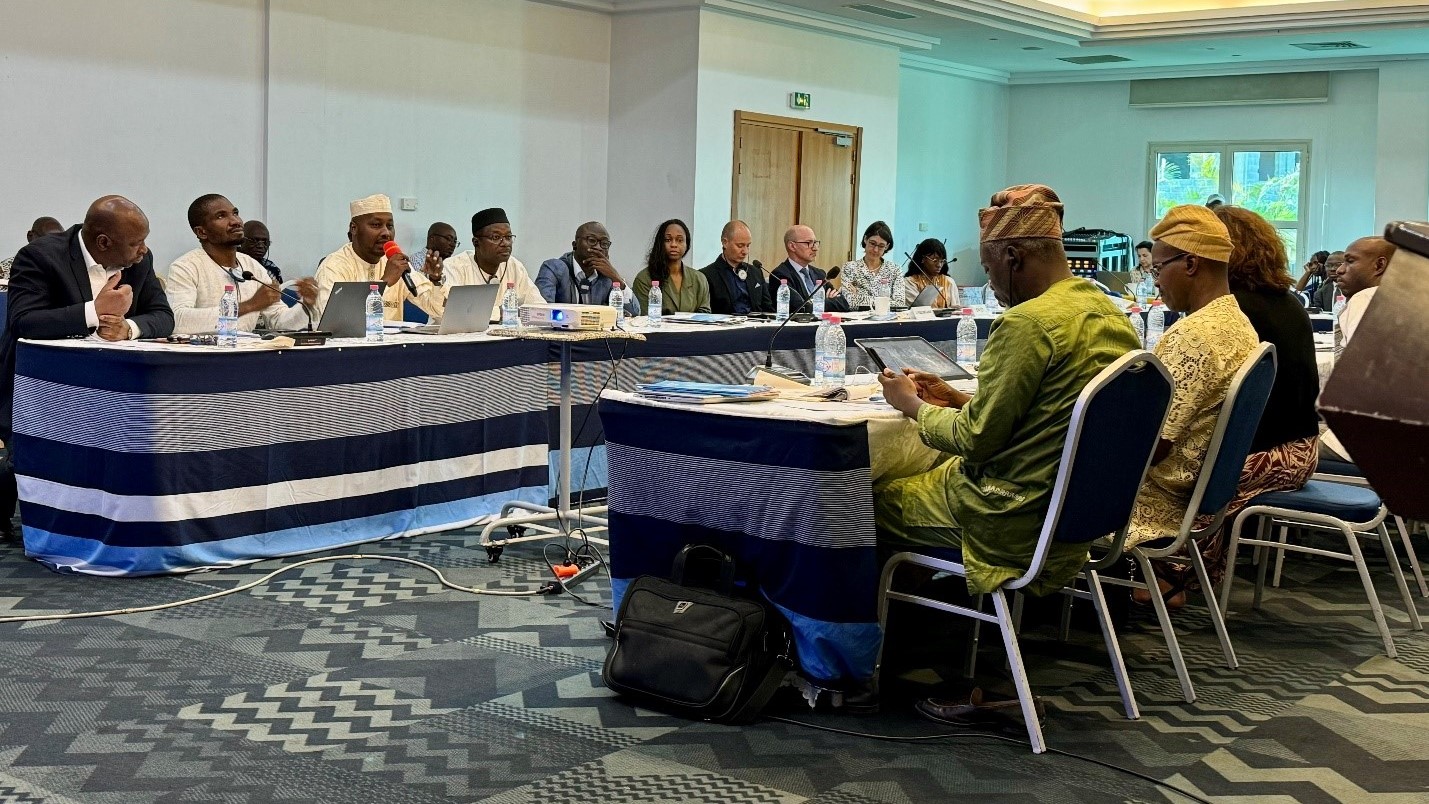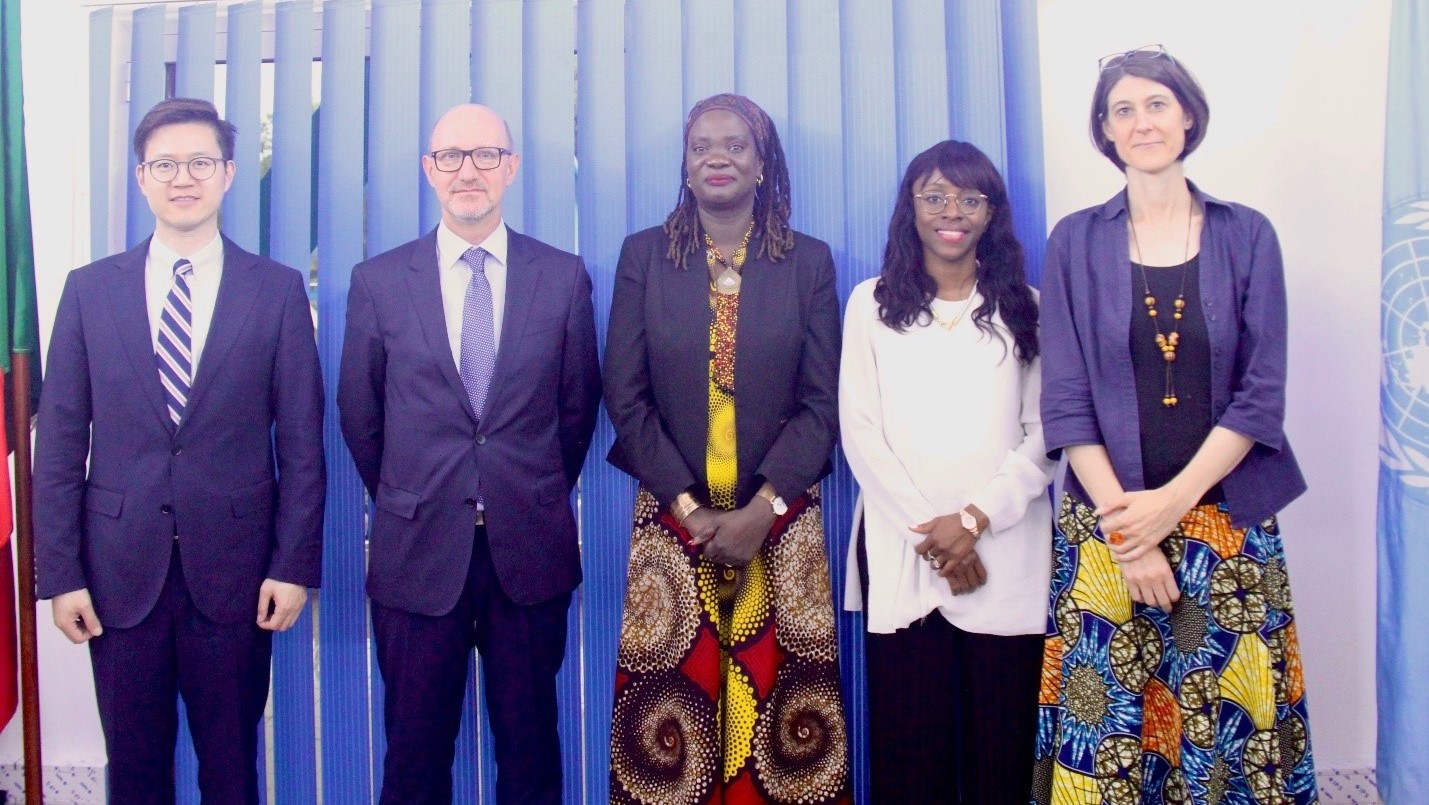

Study confirms the significant potential for job creation in West Africa's cotton-producing countries, particularly for women and youth, through the development of cotton-to-clothing industries
10 June 2024

Cotonou, 5 June 2024 - An international workshop reviewed the findings and main recommendations of a study on the cotton-to-clothing industries in Africa’s main cotton-producing countries- namely Benin, Burkina Faso, Chad, Cote d’Ivoire and Mali, also known as the C4+. The validation workshop took place on the second day of the Steering Committee meeting of the “Partenariat pour le Coton” (Partnership for Cotton) in Cotonou Benin. The Partenariat pour le Cotton is a multistakeholder initiative, initiated at the World Trade Organization (WTO), that includes the United Nations Industrial Development Organization (UNIDO), the International Trade Center (ITC) and the International Labor Organization (ILO). The partnership aims to support African cotton -producing countries to add value to cotton and integrating them in international textile and clothing value chains. The baseline study aimed to evaluate the supply side capacities in C4+ countries and analyze international and regional demand for different product segments. Its purpose was to provide guidance for countries and development partners in enhancing the cotton, textile, and apparel value chains in these nations. Afreximbank and FIFA, two partners in the initiative, financed the study.
Participants at the international validation workshop include representatives from the African Export-Import Bank (AFREXIMBANK), Better Cotton Initiative (BCI), Cotton made in Africa (CMIA), FIFA, International Atomic Energy Agency (IAEA), International Cotton Advisory Committee (ICAC), International Finance Corporation (IFC), International Labour Organization (ILO), ITC, the Scan-Thor Group, the UNIDO, the UN Resident Coordinator in Benin, WTO, national delegations and private sector representatives from the C4+ countries.
In her opening remarks, the UN Resident Coordinator in Benin, Aminatou Sar, underlined the importance of the cotton sector to the economic development of the C4+ countries. She expressed delight about the strong involvement of UN agencies in this initiative, and encouraged them to work as “One UN” in support of the cotton to apparel value chain and the SDGs.
During the validation workshop, the Steering Committee Members together with national stakeholders discussed and validated the findings and recommendations of the baseline assessment undertaken by UNIDO and ITC. The study confirmed the opportunity and potential that C4+ countries have in transforming up to 25% of their raw cotton over a timeline of 10 years. To achieve this, a total investment of around 5 billion USD in industrial and semi-industrial production facilities will be needed, as well as several capacity building interventions. The significant potential for job creation stands out, with an estimated 500,000 direct jobs expected to be generated, primarily benefiting women. This will result from transforming 25% of the raw material while concurrently developing garment industries, making it a key impact on the SDGs.The development of the largest integrated cluster in Africa, along with its impact on SDGs 8 and 9, and the enhancement of livelihoods in rural communities (addressing SDGs 1 and 2), are notable contributions toward achieving the SDGs.To achieve these benefits, a number of key constraints will need to be addressed, such as the current lack of skilled manpower, the lack of access to finance, weak capacities of business support institutions and infrastructure bottlenecks. The study proposed various interventions for the C4+ countries and development partners to consider
“New and upgraded technology – including renewable energy and recycling technologies- will be essential when processing cotton for export markets and meet due diligence requirements. Developing textile and clothing industries in this new era requires new skill sets to adopt green and digital technologies. UNIDO and ILO have intensified their collaboration to develop a joint initiative called ‘Skills for Sustainable Industrial Transformation in Africa (SITA)’ to strengthen lifelong learning systems in Africa to drive industrial transformation and a ‘Just Transition’”, said Jinjiang Yan, UNIDO Industrial Development Officer.”
In her intervention, ITC Country Manager, Ludmila Azo said “At ITC, we recognize that SMEs are the backbone of any thriving economy. These businesses, including those in the cotton, textiles, and fashion industry, drive innovation, create jobs, and are pivotal for sustainable development. We must enhance their competitiveness and enable their participation in global value chains. This requires comprehensive capacity building to improve skills and technologies, facilitating access to finance so they can invest in growth, and opening up access to international markets. This is key to ensuring that the promises of the cotton value chain, including 500,000 potential new decent jobs are widespread, inclusive, and sustainable, fostering economic resilience and prosperity across the C4+ countries”.
The study will serve as a basis for developing a comprehensive programme of investment promotion and capacity building in the C4+ countries, which development partners are called upon to support.


For more information please contact:
UNIDO: Jinjiang Yan, Industrial Development Officer, UNIDO, email
ITC: Matthias Knappe, Head of Fibres, Textiles and Clothing Unit, ITC, email
ILO: Christine Hofmann, Team Lead Skills for Social Inclusion, ILO, email
The UNRC in Benin: Jelena Katic, Head of UN Resident Coordinator Office in Benin, email